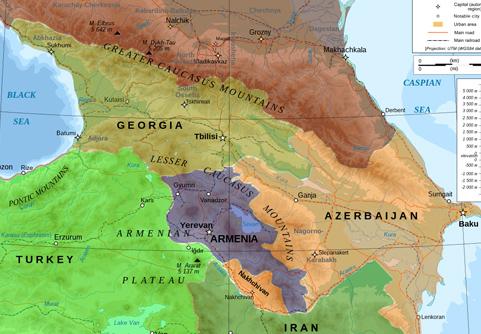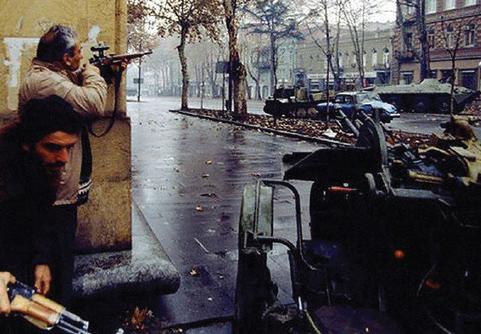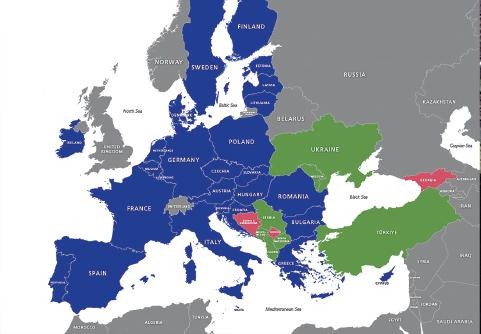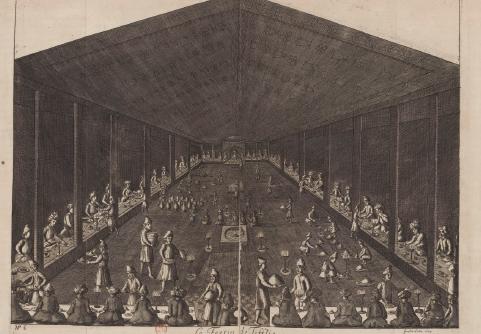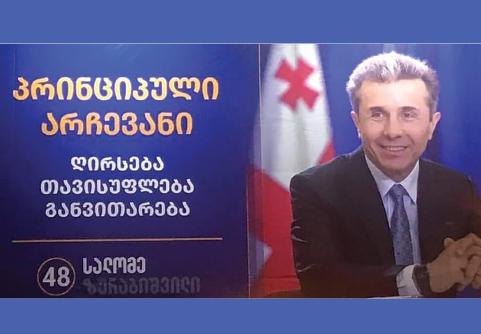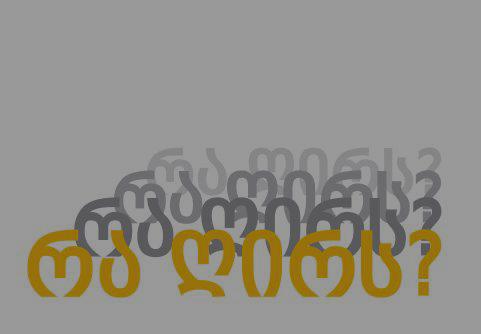
Author : Tata Akubardia

There is perhaps no better phrase to express Georgian reality than this. The famous phrase has taken an important place in the Georgian urban vocabulary since the advent of digitalization, especially online sales. The situation becomes much more comical when people ask the price of an item with a clearly indicated price. Ultimately, these seemingly harmless comments, to which every mortal is accustomed, lead to a sad conclusion... a sad and serious conclusion that the persistent asking of the same question about the title of the film under the film poster, about the location in front of the store map, and about the issues already discussed in the long post above, is nothing but a massive problem of an inability to understand what one has read.
From Illiteracy to the Era of Rote Learning
“Do we have any of these merits today, suitable for our time? What can I tell you? What will make you happy?” – Ilia Chavchavadze
If there is criticism of the level of education in Georgia, a Georgian “patriot” will show you a Wikipedia article stating that Georgia is, if not in the top ten, then in the top twenty in terms of literacy in the world. In a country of 3.7 million people, a high literacy rate shouldn't surprise anyone, and one more thing – doesn’t anyone wonder how proud one can be of having the basic skills needed to live in the twenty-first century?
In the nineteenth century, when Georgia was hard to find on a map, literacy carried more weight than what it now means for a country to be as high as possible in Wikipedia’s statistics. In the era of the Society for the Spreading of Literacy, this skill was a tool for the survival of the nation. However, our country, along with many other problems, often confuses epochs. What else could be the reason for sentences like: “I wish Stalin would come back to life!” “Gogebashvili's alphabet should be taught in schools”; “Where was the Internet in our time?” and many others. This too has caused a problem, people have forgotten that time always brings innovations and methods of dealing with problems change.
The story starts from the Soviet Union. Unfortunately, I cannot explain the era in which I was not even born, although I am absolutely certain that the system back then needed as few thinking and progressive people as possible. The schools of that time had a sacred institution that we can call “memorization” in our mother tongue. How can you love The Knight in Tiger's Skin if you are forced to memorize it even if you don't understand its contents? The system of memorizing, trying to have as few questions as possible, learning by heart clichéd opinions, has created a huge black hole, which in turn has created many other problems. One of them, which almost no one talks about, is the problem of reading comprehension and critical thinking. This problem has spread like a domino effect to children who were not born in the Soviet Union. Quite simply, this generation grew up and began to raise the next generation the same way it had been raised. Today, it is not only the previous generation that faces the problem of reading comprehension, but also my peers.
A couple of years ago some kind of testing was conducted at school, I can't say for sure which grade we were in. I didn't know what kind of a test it was at the time, but pupils were chosen from two different groups. As the children later told me, there were foreigners among the observers. Then I found out that the results of this test became known in 2016, while the Ministry of Education had hidden them for two years. In the end, it turned out that according to the study, 14 percent of 9-10 year olds in Georgia do not have even minimal reading skills. Fourteen percent is a huge number for a country of 3.7 million people. Statistics aside, here is a story that happened a few months ago. In 2022, a second-choice topic in the national Georgian language and literature exams caused quite a stir. Applicants could not work out what the proposed topic meant. There was even an argument about which word – “error” or “sin” – was written in the title of the topic.
A lack of reading comprehension skills, i.e. a problem within a problem
It is often difficult for people to realize what a serious problem we are facing. And the problem is much bigger than the price issue in the comment box. The problem proves to us that we are far more easily deceived, misled, panicked and desperate than we realize. Because we misunderstand what is written or we understand it the way we want it to be. We do not question why this is so? Because we are used to it, everything is as it should be, and asking unnecessary questions won't do any good.
The problem is most dangerous because it can be exploited by a neighboring country of “the same religion”. We have already seen that Russia is waging information warfare everywhere and in everything. Ironically, a few years ago, influential media claimed that Russia had even interfered in Madagascar's elections with its fake news. What will happen if Georgia provides fertile ground for Russian disinformation to take root?
Playing with Weaknesses
Internet publications often use a hooking method, which suggests problems with critical thinking and reading comprehension. Usually they write an article with a completely different headline, to intrigue the reader, so to say. The readers, without reading the article, will only look at it superficially and thus get the wrong information. A few hours ago I saw a simple example of this. A media outlet wrote about a tragedy that happened in 2003. Fourteen of the sixteen passengers in a minibus were killed. Because of the headline, which was not dated, people wrote letters of condolence in the comments section, complaining about the mess on the roads, etc. Seems like no big deal, except that such poorly written information can one day lead to the wrong results. Apart from the terrible stress it causes people, it makes us think about one thing: What would happen if an enemy state wanted to spread misinformation in the country? The fact is that fakes are much easier to spread in a country where people only read the headlines, and then only superficially.
Stalemate Situation? – A Simple Solution!
We are certain that the problem is deep and widespread. We cannot replace generations, but we can change them. The education system has so many shortcomings that a separate article is needed to explain them in detail. The quickest and easiest solution is media literacy. Introducing it into schools will give future generations new reading comprehension and critical thinking skills. Media literacy won't hurt adults either, if nothing else we will at least win the information war.
Over time, priorities, approaches, and problem-solving methods change. Today, Georgia is struggling with the legacy of its dark past, the problem of reading comprehension. If the problem is not to become contagious, it must be addressed. I would like to wake up in Georgia one day where the comment box only says "How much?" when the product does not actually have a price tag.

